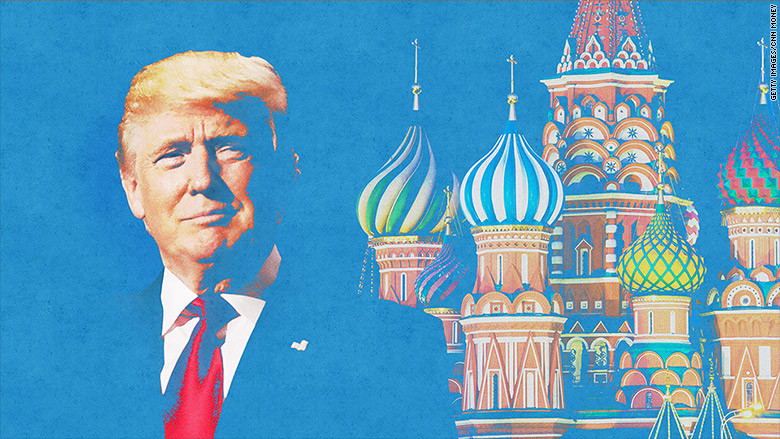
When U.S. President Donald Trump asserts in an interview with Fox News that “it would be great if we got along with Russia,” one gets a strong feeling of déjà vu.
We already heard it all more than once during the White House chief’s election campaign, and then during his first months in office. All of it was uttered from various podiums, quoted by the press, and gave the hope that the U.S. administration would, any moment now, move away from its previously confrontational course and return to constructive dialogue with Moscow. Yet the decisions made by Washington have demonstrated the opposite tendency. The White House made contact, but solely along diplomatic lines where its own national interests were realized. As a result, cooperation with Russia under Trump has shrunk down to a few areas. But even on these lines, if we take Syria, there are volatile situations that regularly trigger across-the-board mistrust, which in no way contributes to improving relations between the countries.
Trump looks upon any further dialogue with Moscow in a purely utilitarian way, expecting to make a lucrative deal in some areas, without abandoning confrontation and competition in others. The statement about a desire to get along with Russia directly concerned only one problem facing the U.S. In the words of the White House leader, “I think we could have a good relationship. I think that the North Korean situation would be easier settled.” But Trump wouldn’t be Trump if he didn’t provide some remarks that are important for understanding the essence of his desire. The U.S. president sought to convince the American public that he’s successfully cooperating with China on all issues relating to North Korea. But unlike Beijing, which, as Trump claimed, is helping the Americans, “Maybe Russia’s going through the other way and hurting what we’re getting.”
Trump’s statement is a clear example of how the White House is forming its foreign policy, seeking to pit allies Russia and China against each other in order to gain additional geopolitical advantage. After all, in his statement Trump effectively asserted, first of all, that Russia is supposedly acting behind China’s back with regard to North Korea; second, that China is prepared to help the U.S.; and, third, that the U.S. might befriend Russia if China is unaccommodating. By and large, Trump’s view isn’t an outstretched “hand of friendship” to Moscow but merely a clumsy attempt to complicate dialogue between Russia and China on the issue of mechanisms for settling the situation surrounding North Korea.
At the same time, nothing points to a real desire by the U.S. administration to reduce the degree of Russophobia in society. On the contrary, the White House continues to intentionally feed anti-Russian hysteria. Indeed, the Fox News interview with Trump was dedicated to criticism of the “uranium deal” that Barack Obama made with Moscow during Hillary Clinton’s “secretaryship of state.” According to the agreements, one of the U.S. companies that mines uranium was transferred to the control of Rosatom. So by paying lip service to befriending Moscow, the White House chief is continuing to deliver pinpoint attacks against all symbols of past cooperation between Washington and Moscow, substantially increasing of late the number of “irritants” in relations between our countries.
Newsweek reports that the U.S. Marine Corps is seriously looking into the prospect of conflict with Russia in Eastern Europe and allocating more resources in case of hostilities in the Old World. American B-52 bombers with nuclear weapons will be placed on 24-hour alert, and U.S. Air Force Chief of Staff David Goldstein has asked his subordinates to think about new ways to use nuclear weapons.
The other day, meeting with the American media, Trump, without embarrassment, said that he considers himself an intelligent person and the press is wrong when it presents him in a not-so-favorable light. As evidence of his outstanding abilities, the president related that he had gone to an Ivy League university (an association of eight elite American universities, seven of which were founded before the U.S. gained independence). Trump claimed that he had been a good student and did his work very well. However, it should be clarified that the president once again misrepresented the facts. He studied at the Wharton School of Business, which operates at the University of Pennsylvania (part of the Ivy League) and awards master’s degrees in business administration. As Trump’s classmates recalled, the future president studied as a mere formality; he got only what he wanted out of the business school, discarding what was, in his opinion, excess knowledge. And he didn’t bother to prepare for regular group classes.

Leave a Reply
You must be logged in to post a comment.